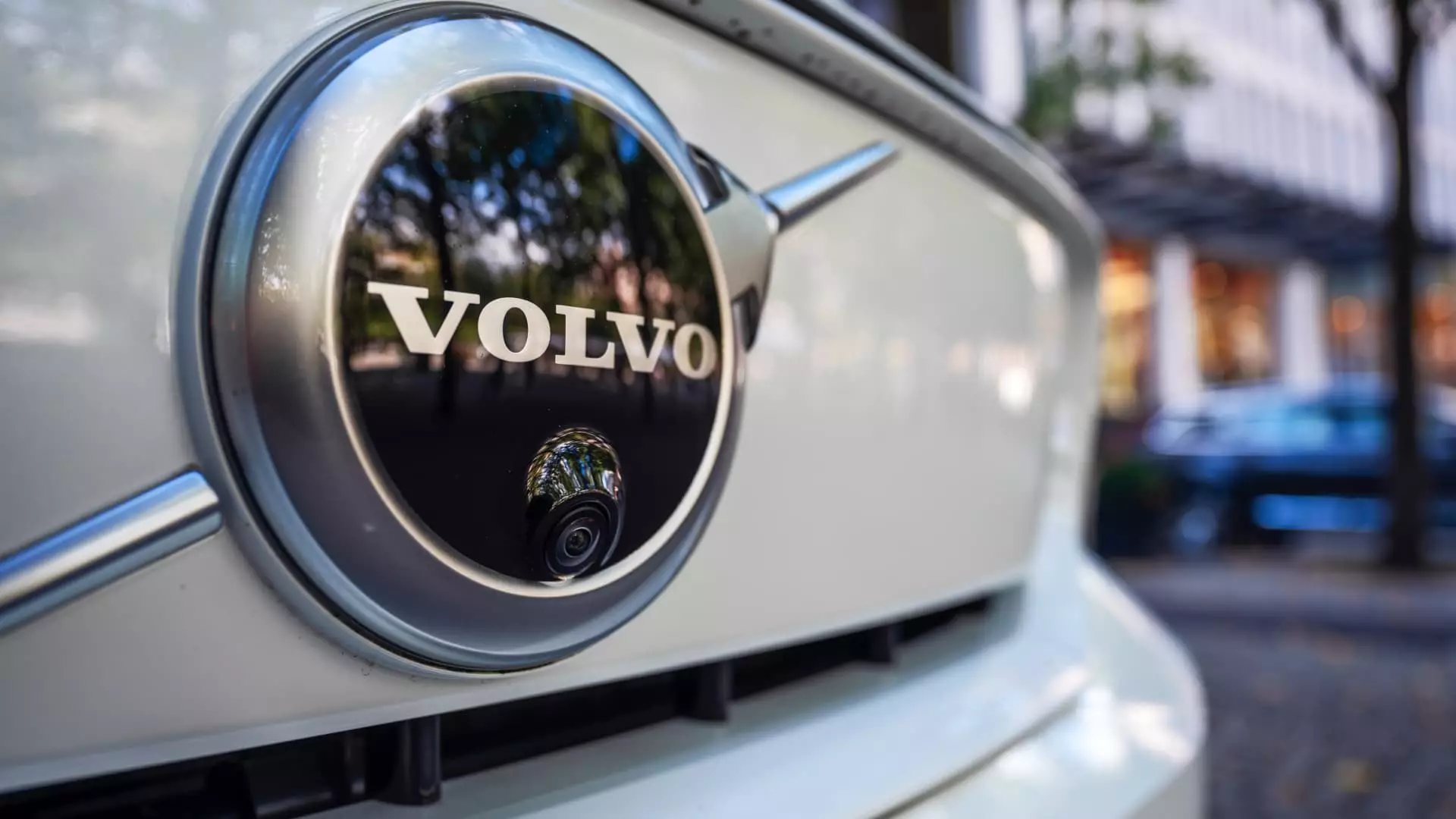Volvo Cars, a brand synonymous with safety and innovation, recently took a dramatic step towards financial austerity by announcing a reduction of approximately 3,000 jobs, a staggering 15% of its office-based workforce. This ambitious effort is not an isolated incident; it is a component of a broader 18 billion Swedish kronor ($1.89 billion) cost-cutting initiative. The decision elicits a strong sense of melancholy; the implications of these layoffs transcend numbers on a spreadsheet. They demolish lives, careers, and dreams. In an era where companies should be stewards of their workforce, Volvo’s choices raise pressing questions about corporate responsibility and the ethics of profit maximization.
A Dilemma Rooted in Global Uncertainty
As Håkan Samuelsson, Volvo Cars’ president and CEO, noted, the automotive industry is navigating through treacherous waters. Factors such as fluctuating trade tariffs and the global economy’s unpredictability weigh heavily on manufacturing giants. The unpredictability of trade policies—deteriorating relationships with the European Union and looming tariffs—places immense pressure on the company. However, sacrificing a substantial portion of their workforce as a solution feels alarmingly short-sighted. The challenges of today’s market demand innovative solutions, not just quick cuts. Volvo should be inspiring its employees, not creating an environment of fear and uncertainty.
The Human Toll of Cost-Cutting
With 1,200 of the affected employees based in Sweden and others spread across global markets, the emotional fallout from this decision is palpable. These are not merely positions sacrificed on the altar of profitability; they represent the livelihoods of families, the aspirations of individuals, and the collective spirit of innovation that drives a company. The consultants to be let go and the talent diminished from the ranks symbolize a loss of expertise and creativity. As discussions of a rapid electric vehicle (EV) transition incite excitement, there is a stark contradiction in enacting austerity measures that jeopardize the very individuals capable of driving this change forward.
Ambition vs. Reality
Volvo Cars has declared its intention to transition entirely to electric vehicles, distinguishing itself as a market leader in this arena. However, that ambition feels hollow when juxtaposed with the layoffs and the withdrawal of long-term financial guidance. The earlier commitment to selling exclusively EVs has now been cited as overly ambitious and unrealistic given the current market complexities. This raises the question: can a company that is so willing to sacrifice its human capital truly evolve into a leader of the electric vehicle revolution? The dissonance between aggressive environmental goals and practical workforce management casts a shadow on their credibility.
A Critical Reflection on Corporate Ethics
In the hyper-competitive landscape of global automakers, where profitability often eclipses people, Volvo’s recent measures negate the very principles on which it built its reputation. The unsettling reality is that many corporations find solace in making sweeping cuts instead of investing in their workforce, which ultimately erodes employee morale and trust. By succumbing to the pressures to streamline for short-term gains, Volvo risks not only its immediate brand loyalty but also its long-term sustainability.
Remaining resilient in an age defined by change means fostering organizational cultures that value every employee, not just those who fit neatly into the grand visions set forth by corporate leaders. Decisions driven solely by numbers can lead to disastrous long-term ramifications, igniting discontent that transcends boardrooms and factories, impacting communities and economies.
While Volvo Cars attempts to navigate these turbulent times, the question lingers: in the race toward cost-cutting and corporate survival, can it find a way to honor its commitment to its employees and the environment? It is a precarious balancing act fraught with ethical dilemmas—one that will define not just the company but also the automotive industry as it grapples with its own future.


Leave a Reply